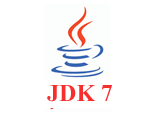Lambdas are the most talked about feature Java 8. But that’s just one feature. Java 8 has a lot of new features - some are powerful new classes and idioms, while others are just killer features that should have been there from the day one. I wanted to go over ten new features which I consider them as Killer Productive Features that definitely every Java programmer should know about them.
Dec 31, 2015
The Ten (10) Productive Features in Java 8 You Should Know
Lambdas are the most talked about feature Java 8. But that’s just one feature. Java 8 has a lot of new features - some are powerful new classes and idioms, while others are just killer features that should have been there from the day one. I wanted to go over ten new features which I consider them as Killer Productive Features that definitely every Java programmer should know about them.
Jan 31, 2013
Android Tools Installation
Development Tools Setup
Before anything, we first and foremost have to setup the development environment in which we are going to start developing our Android apps. I am going to use Eclipse IDE as my development environment of choice. For those that are familiar with Java, Eclipse should probably be familiar to them. We also need the Android SDK which contained all the utilities required for applications development, as well as the tools for debugging, testing etc. There is also sample codes and documentations.
Jan 17, 2013
Introduction To Android
What Android is all about?
Dec 4, 2012
Java Generics and PECS Rule
The fad behind the Arrays and the generic Collections is defined by this two important scenarios: Arrays are covariant(Widening their reference) while Collections are invariants(Narrowing their reference). When it comes to input parameters it becomes clear that these two containers differ largely and requires extra careful approach. for instance if a class of Foo is a subtype of another class Foobar then the array of type Foo[] is a subtype of Foobar[].
Nov 8, 2012
Java 7 Overview: Multi-Catch Support
Java 7, also known as Project Coin also improved Java's exception handling with the introduction of Muti-Catch Exception and Final Rethrow supports. With Multi-catch you will now be able to catch multiple exceptions in single block contrary to Java 6 or earlier where this isn't possible.
In the previous posts, I used a multicatch feature in the Cryptography examples.
Despite the fact that in the previous code, the method encrypt_data() throws an exception.
Nov 6, 2012
Java 7 Overview: Automatic Resource Management
Java 7 support Automatic Resources Management through the try-with-resources statement. A resource is an object that must be closed after the program is finished with it. The try statement could declare one or more resources, where it ensures that each resource is closed at the end of the statement. Any object that implements java.lang.AutoCloseable, which includes all objects which implement java.io.Closeable, can be used as a resource in this regard.
Nov 2, 2012
Java 7 Overview: String in Switch Support
 Prior to Java 7, Switch statements work either with primitive types or enumerated data types.
Java 7 introduced ability to Switch on String type.
Prior to Java 7, Switch statements work either with primitive types or enumerated data types.
Java 7 introduced ability to Switch on String type.The issue worth mentioning about switch statement when used with a String type is, it uses equals() method to compare the expression pass to it, with each value in the case statement, which made it case-sensitive and will throw a NullPointerException if the expression is null.
As a result, checking for null parameter and converting the string to lower
Subscribe to:
Comments (Atom)



